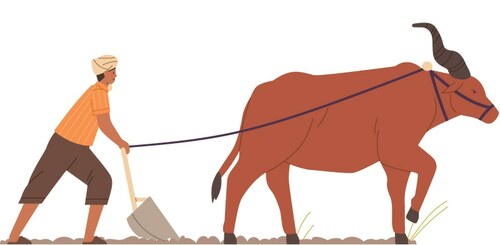
The Rs4.5 trillion federal budget did little to ease the backbreaking economic pressures on middle-class families in Pakistan.
People are still struggling to digest the meteoric rise in a short span of time and the fast fall of the PTI that captured the imaginations of many as a glimmer of hope for the future. This was at the top of the crippling economic distress that stagflation mounted on average households in Pakistan.
Even if there was a growth of 0.3 per cent, as the current Pakistan Economic Survey claims, it didn’t feel like that over the last year when inflation broke all records, currency value tanked, and the unemployment level hiked. Most normal average households landed lower on the social ladder in the course of the year.
The runaway inflation of 30pc and more, with static income and squeezed avenues of supplementary support, made managing family budgets hard. It forced many to scale down spending on rent by shifting to smaller spaces or to localities with relatively economical housing, shifting children to cheaper schools, limiting health spending, cutting on comforts and, in extreme cases, selling family silver or borrowing to stem the living standards. Many ended up deeper in debt.
A sizeable percentage of average Pakistani families can end up liquidating assets or sinking deeper into debt during the year ahead
The situation is not likely to change for the majority over the year ahead, even if the next elected government revises the budget to insert much-needed corrective measures and restore the confidence of businesses in the country and its future.
The budget proposals target to tame the inflation rate to 21pc and perk up the growth rate by over 3pc. Even if things go as planned and ruling coalition assumptions, particularly related to the International Monetary Fund (IMF), hold ground, it is hard to imagine what normal families will do to close the growing gap between falling real income and rising needs.
The kitchen budget has already shot through the roof, and random anecdotal evidence suggests a fall in nutrition intake by children and adults of the middle class for want of affordability.
“We were not rich but could afford decent food. I never rationed eggs, milk, meat, etc before. Now I am forced to think twice before regular grocery. We dread guests at mealtime as sometimes it gets embarrassing. Even serving them tea pinches,” Shamshad, 45, a homemaker, and wife of a private company account officer, said, discussing family financials in an informal survey before the budget.
Finance Minister Ishaq Dar, during the speech on Friday in the parliament, said that besides the flood catastrophe, the Ukraine war, interest rate hikes in the West, pressure in the global commodity market and the massive devaluation of the local currency, political uncertainty contributed to the unprecedented price hike. He targeted over 10pc fall in inflation to 21pc in FY24, though many of these factors are external, beyond the finance minister’s control.
Nothing suggests any respite in rising home rents after the budget. Even if housing rentals freeze at current levels, they will be difficult to afford unless income increases at a rate higher than inflation. Many nuclear families are said to be considering reverting to a joint family system to cut the living cost of an independent establishment.
Transport spending is another area that consumes a chunk of the family budget. The government has cut the petroleum products cost marginally, but public transport rates have not been revised down and could increase again if the downward trend in global oil prices fails to sustain.
Income tax liability has not been increased and will stay static at the current level unless the next caretaker government or the one that assumes power after the general elections decide to increase tax rates.
Family spending on education and health will also likely increase over the year ahead. Assuming everything else remains the same, a sizeable percentage of average Pakistani families can end up liquidating assets or sinking deeper into debt during the year ahead.
The relief granted to civil servants by upward salary revision will benefit a tiny minority. Salaries and pensions are proposed to be revised up by 30pc and 17.5pc respectively. It will cover, at best, under 1pc of the middle class. Only government officers of Grades 17 to 22 are included in the middle class. Those in Grade 1-16 given 35pc salary increase are at the lowest rung of the middle class or poor.
Collectively all three million government employees are a mere 2pc of the 241m strong population of Pakistan. The rest of the working population works in the private sector and is at the mercy of employers, not necessarily good paymasters.
Despite distress and frustration, the chances of public resistance to government budgetary steps or their active engagement in the public debate over policy options are remote.
The political adventurism and incitement to violence by PTI leadership, the consequent crackdown followed by leaders jumping ship openly in public glare breached the trust and demoralised the public. Many average Pakistanis know someone who ended up in lock up with a possible long jail term.
The general elections, a big money spinner in Pakistan, if held later this year, might help change the mood as some percentage of private money injected in the system finds its way to the service sector manned by the middle classes.
Published in Dawn, The Business and Finance Weekly, June 12th, 2023














































Dear visitor, the comments section is undergoing an overhaul and will return soon.